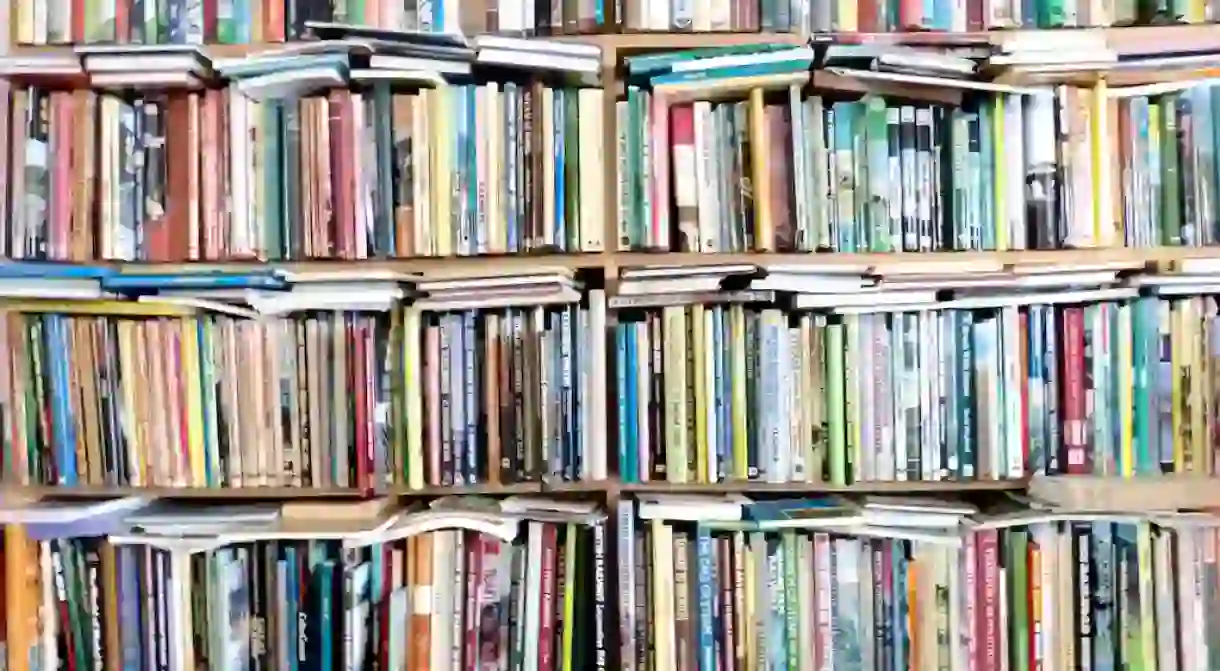7 Contemporary Russian Writers You Should Know

Russia is a country famous for its literature. From its golden age and Tolstoy and Dostoevsky to Pasternak and Solzhenitsyn in the 20th century, Russian literature has a masterpiece for any taste. Its good streak did not end with the end of the Soviet period; contemporary Russian literature has plenty to offer to both Russian and international readers. Here are seven contemporary Russian writers you should know.
Victor Pelevin
Victor Pelevin’s fiction is very much out of the ordinary. His novels weave together elements of science fiction, popular culture and Eastern philosophies to form the most unexpected postmodern patchwork. His first novel, Omon Ra, attracted a lot of attention from literary critics and got Pelevin a nomination to the Russian Booker prize (which he had received once before for his poetry). Omon Ra is a very alternative story of the Russian space programme and a very accurate commentary on the Soviet and post-Soviet reality. Pelevin became internationally recognised thanks to his third novel, Generation P. It sold 3.5 million copies worldwide and was nominated for a number of prizes. Generation P is a very psychedelic account of the transition from Soviet to capitalist Russia. Pelevin leads a very secretive private life, rarely gives interviews and doesn’t appear at literary events. He often travels to the Far East. His extraordinary postmodern fiction is most certainly worth your attention.
https://www.instagram.com/p/BCTJwQZCo7s/?hl=pl&tagged=generationp
Lyudmila Ulitskaya
Lyudmila Ulitskaya is one of the most internationally renowned contemporary Russian writers. She was born in 1943 in Bashkiria, but soon after the war, her family came back to Moscow. She graduated from the Biology faculty at the Moscow State University and worked as a geneticist for two years when she was made redundant due to the dissemination of illegal publications. Ultiskaya didn’t start publishing fiction until the late ’80s. Her first novel, Sonyechka, became very popular in France and gained her the prestigious Prix Medicis. Ulitskaya considers herself ethnically and culturally Jewish, but her religious affiliations lay within Christianity (which is not unusual for people of Jewish heritage in this part of the world). That part of her identity has had a significant influence on Ulitskaya’s writing. Her fiction is unusually ascetic when compared with the rest of Russian literature, void of long descriptions and rich dialogues. It does, nonetheless, make for addictive reading. Ulitskaya is one of the most interesting characters in Russia’s contemporary literary scene.

Vera Polozkova
Vera Polozhkova is one of the brightest stars and one of the precursors of Internet poetry. She started writing poetry when she was five. She was one of the first to start publishing her poems online on her page in LiveJournal. Her first poetry book was published in 2008 by Aleksandr Zhitiniskiy, another Russian writer, who became familiar with her poetry through her online presence. She’s been also one of the first poets to bring her writing on stage, performed with live music. Polozhkova not only writes poetry, she also sings and performs in theatre performances based on her poetry. She’s much more than just a writer, she’s a multi-media cultural phenomenon.

Boris Akunin
Boris Akunin is one of the best known detective story writers in contemporary Russian literature. He is most known for the series of historical novels about the detective Erast Fandorin. Four of the books were made into high-budget Russian films and English remakes are in the making. Boris Akunin is also a translator from English and Japanese. He doesn’t approve of the current Russian regime, and since 2014 has lived in France. His fiction is an intriguing journey into 19th-century Moscow that is a must-read for those willing to visit the city.

Mikhail Shishkin
Mikhail Shishkin is yet another writer openly opposed to the current Russian regime. He is the only recipient of all three of Russia’s main literary awards: National Bestseller, Big Book Prize and The Russian Booker Prize. His prose is intricate and allusive, concerning universal dilemmas such as love, death and resurrection. His concise language is believed to be a prolongation of Pushkin’s legacy. In 2013, Shishkin refused to represent Russia at the Book Expo in the United States in order not to be associated with the regime. Since 1995, he’s lived in Switzerland.

Dmitry Glukhovsky
Dmitry Glukhovsky is one of the best-known contemporary science fiction writers. He became famous because of Metro 2033, a post-apocalyptic novel set in the Moscow metro. He first published the novel online in 2002, with the first printed edition only appearing in 2005. Glukhovsky has written two sequels to the novel, Metro 2034 and Metro 2035. It quickly became an Internet phenomenon, growing into what is now called the Universe of Metro 2033, with many authors from all over the world chipping in with their stories set in the Metro 2033 world. Glukhovsky is yet another writer taking Russian literature into the 21st century at full steam.

Tatyana Tolstaya
Even though her family was only vaguely related to Leo Tolstoy, Tatyana Tolstaya had some very big shoes to fill. She was born into a family of writers: her paternal grandfather was Aleksey Tolstoy, a precursor of science fiction in Russia and a relative of Ivan Turgenev, a shining star of the Golden Age of Russian literature. She’s emerged to be one of the most important writers of the Perestroika and post-Soviet periods. Her love of language and use of the surreal is compared to that of Nabokov, her affinity with nature and attention to detail to that of Turgenev. Tatyana Tolstaya is not only a fiction writer, she’s also an essayist and a TV presenter, actively commenting on the modern Russian reality.














